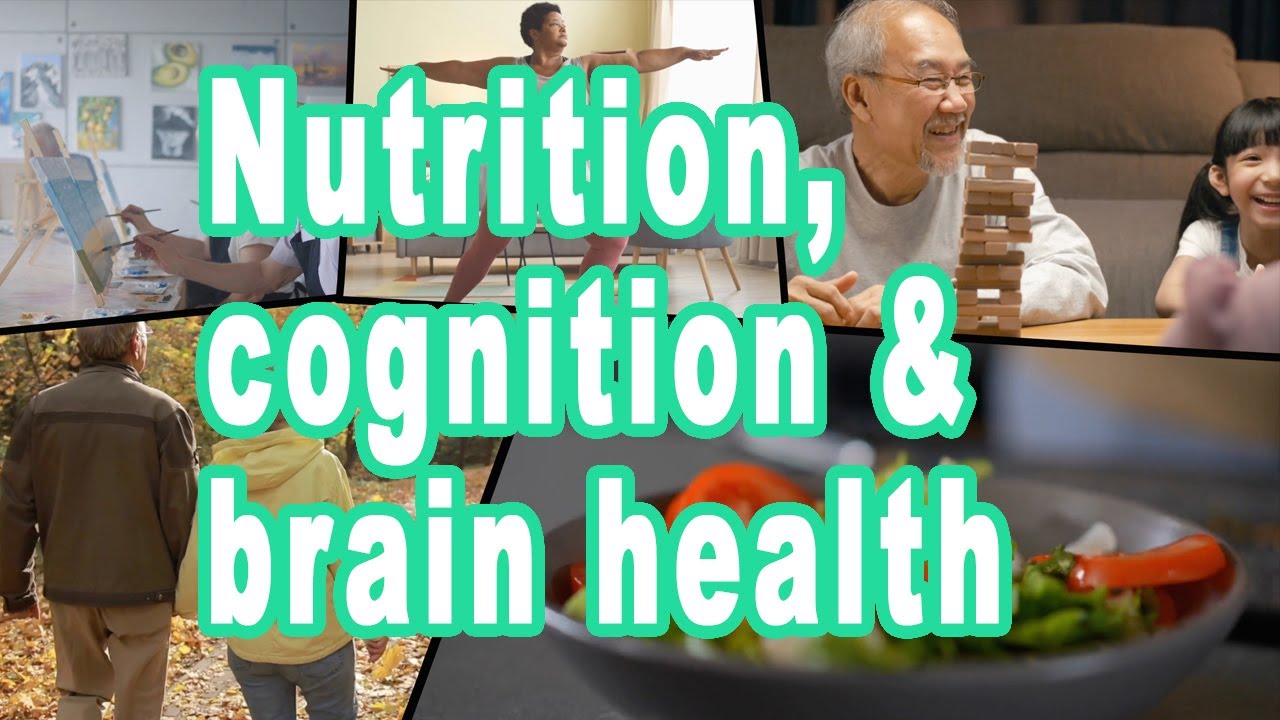Ces aliments DETRUISENT ton cerveau sans que tu le saches
Summary
TLDRIn this video, the speaker explores how certain foods can disrupt brain function and cravings, comparing the brain to an airport. Sugar, additives, industrial fats, salt, and alcohol are identified as key disruptors, affecting neurotransmitters, brain cells, and overall mood. The speaker emphasizes the importance of tackling sugar cravings before embarking on weight loss plans and suggests a menu aimed at resetting brain function, incorporating anti-inflammatory foods, omega-3s, and healthy fats. A well-balanced diet is presented as crucial for maintaining brain health and avoiding the long-term consequences of poor dietary choices.
Takeaways
- 😀 Eating sugary foods triggers the brain's reward system, causing a spike in happiness, but leading to cravings and withdrawal symptoms later.
- 😀 Sugar consumption can cause addiction-like behaviors, making it harder to control cravings and leading to a cycle of increased sugar consumption.
- 😀 Before trying to lose weight, it is essential to address sugar cravings, as they can significantly hinder weight loss efforts.
- 😀 Additives, especially fake sugars like aspartame, can disrupt brain signals, leading to confusion and addiction-like symptoms, particularly in children.
- 😀 Industrial fats, especially trans fats, can harm the brain's neurons, making them less effective and potentially leading to degenerative diseases over time.
- 😀 Omega-3s, which are found in foods like trout and nuts, are essential for maintaining healthy brain function and neuron health.
- 😀 Salt can disrupt blood circulation and increase blood pressure, impairing brain function and the transport of essential nutrients like omega-3s.
- 😀 Reducing salt intake gradually, while incorporating spices and herbs for flavor, can help reset the body's threshold for salt cravings.
- 😀 Alcohol, when consumed excessively, can impair brain function, cause addiction, and lead to long-term brain damage due to inflammation.
- 😀 To reset your brain and reduce cravings, a diet rich in omega-3s, antioxidants, and anti-inflammatory foods, such as fruits, vegetables, and spices, is recommended.
Q & A
Why does eating chocolate sometimes lead to an immediate craving for more?
-Eating chocolate activates the reward system in the brain, which releases neurotransmitters like dopamine, causing a burst of happiness. However, the effect wears off quickly, leading to a desire for more sugar to replicate the feeling of pleasure, creating a cycle of cravings.
How does sugar impact the brain's function, according to the video?
-Sugar causes an over-excitation of the brain’s reward system, leading to an intense, but short-lived, release of happiness. This disrupts the brain’s balance and leads to cravings for more sugar, which can eventually result in withdrawal symptoms and pseudodepressive feelings.
What analogy is used in the video to explain how the brain works?
-The video compares the brain to an airport, where neurotransmitters and hormones are like planes that transport emotional and physical signals. The control tower, which is supposed to manage these signals, is disrupted by things like sugar, leading to chaotic functioning in the brain.
What are the potential long-term effects of consuming too much sugar?
-Consuming excessive sugar over time can reprogram the brain’s reward system, leading to addiction-like behaviors, cravings, and even mental health issues like depression or irritability. It also reduces the pleasure derived from sweet foods, making it harder to control sugar intake.
How can addressing sugar cravings improve weight loss efforts?
-Before focusing on weight loss, it's important to resolve sugar cravings. If someone’s brain is constantly demanding sugar, it makes it challenging to stick to a healthy eating plan, leading to feelings of deprivation and difficulty in losing weight.
What role do additives play in disrupting brain function?
-Additives, especially artificial sweeteners like aspartame, interfere with the brain’s signaling system, mimicking real sugar and creating confusion in the brain. This can lead to addiction, lack of focus, or hyperactivity, particularly in vulnerable individuals like children.
What are the dangers of consuming industrial fats (trans fats)?
-Industrial fats, or trans fats, damage brain cells and impair neuron function by altering the fluidity of the cell membranes. Over time, this can lead to degenerative diseases like Alzheimer’s, Parkinson’s, and other cognitive impairments.
How does salt affect brain and heart health?
-Excessive salt thickens the blood, increasing blood pressure and making it harder for nutrients and omega-3s to reach the brain. Long-term, this disrupts brain function and can lead to cardiovascular issues like heart disease and stroke.
Why is alcohol considered harmful to brain function?
-Alcohol is a toxin that disrupts brain function by impairing neurotransmitter balance, particularly GABA, which is responsible for calming. Over time, alcohol diminishes the brain’s ability to produce and respond to calming signals, leading to addiction and cognitive decline.
What is the ideal menu suggested in the video to help reset the brain?
-The ideal menu includes a breakfast with smoked trout, nuts, and fruit, lunch with a green bean cassoulet, a snack with apricots and petits suisses, and a dinner of spinach salad with goat cheese and strawberries. The menu focuses on antioxidants, omega-3s, and anti-inflammatory foods to support brain health.
Outlines

This section is available to paid users only. Please upgrade to access this part.
Upgrade NowMindmap

This section is available to paid users only. Please upgrade to access this part.
Upgrade NowKeywords

This section is available to paid users only. Please upgrade to access this part.
Upgrade NowHighlights

This section is available to paid users only. Please upgrade to access this part.
Upgrade NowTranscripts

This section is available to paid users only. Please upgrade to access this part.
Upgrade NowBrowse More Related Video

How to Destroy Sugar Cravings (According to Neuroscience)

Do THIS Before Eating to Eliminate Brain Fog

Linking nutrition, cognition, and brain health

Top 10 Foods That Cause Dementia

9 Daily Habits That Sharpen Your Brain, Focus, and Memory 🧠 | Dr Pal

Top Neuroscientist Reveals TOP FOODS that REPAIR BRAIN Cells | Dr. Tara Swart
5.0 / 5 (0 votes)